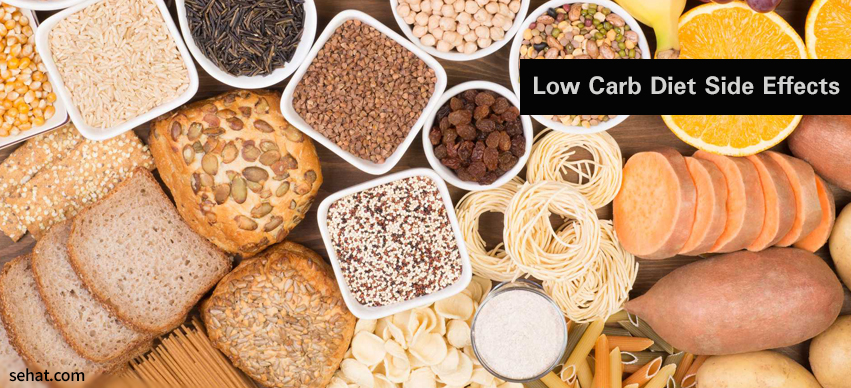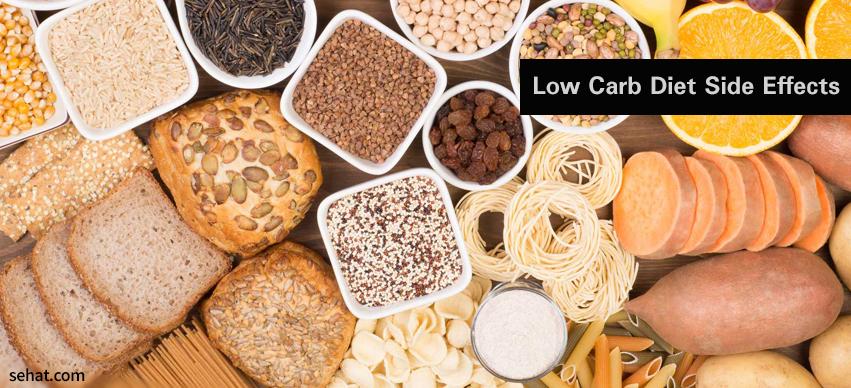What is Tempeh? Nutrition, Health Benefits, How to eat
4 Min Read


Carbs, also known as carbohydrates form are naturally occurring complex compounds such as sugars, starch, or fiber. Carbohydrates form a major portion of the Indian diet and are necessary for the energy required to carry out metabolic activities in both humans and animals. Apart from biological functions, carbohydrates also add the desired taste and appearance to food. Carbohydrates are found in plenty of foods items, subsequently allowing the intake of other nutrients as well.
Some illnesses associated with carbohydrate metabolism or excess carbohydrate intake are lactose intolerance, glycogen storage disease, obesity, galactosemia, and diabetes mellitus. This article will help you understand those long term low carb diet side effects and how a low carb diet affects the skin.
In the recent past, a newer trend of achieving weight loss was introduced and has been practiced by several people worldwide – the low carb diet.
A low carb diet essentially focuses on losing weight while eating healthier food options which contain less than 100 grams of carbohydrates/day or foods that have a low glycemic index.
A low carb diet not only aims at achieving a healthier weight but also greatly reduces the risk of developing type-II diabetes mellitus and metabolic syndrome. A low carb diet also helps to inculcate healthy eating habits.
On the contrary, research suggests consuming high carbohydrate foods such as unrefined grains, fruits, cereals, and plenty of fibrous foods. Such diet providers better nutritional value as compared to a low carbohydrate diet.
However, keeping in mind the various functions that carbohydrates help to carry out, consuming a low carb diet over a long period of time may have potential side effects.
Studies have proven that long term consumption of a low carb diet along with high protein intake results in an increase in glucose production by the liver and reduced peripheral utilization of this glucose. This can cause insulin resistance. Also, this may hasten the development of type-II diabetes mellitus among susceptible individuals due to the failure of beta cells of the pancreas (the cells secrete insulin).
A long-term side effect of a low carb diet involves an overall increase in total cholesterol and low-density lipoproteins (LDL) and elevated high-density lipoproteins (HDL). High LDL is linked to atherosclerosis resulting in an increased risk of heart diseases. Chronic intake of a low-carb diet causes an increase in free fatty acids resulting in cardiac arrhythmias.
Bone health is an essential concern due to the following reasons;
some long term side effects of a low carb diet may also include a risk of cancer because of the following reasons;
A low carb diet contains significantly lesser dietary fiber as found in cereals, legumes, and fresh fruits and vegetables. Long term low-carb diet has reported as causing constipation.
Persons following a low carb diet or a ketogenic diet have often experienced skin rashes called the keto rash. Things you must know about a keto rash are;
Since a low carb diet completely cuts out certain fruits and vegetables, the body does not receive the necessary antioxidants and flavonoids which are required by the body. Lack of these nutrients makes the body incapable to fight against infections and this could be the reason behind the development of keto rash.
Research studies have proven that a diet that contains fresh fruits and vegetables along with whole grains, pulses, legumes, and low-fat dairy products is more beneficial for healthier weight loss and weight maintenance. These diets are also linked to a lesser risk of chronic illnesses.
Diets must be followed only after consulting a professional dietician or a nutritionist to avoid undesirable consequences associated with such diets. The infamous message “don’t eat carbohydrates, they make you fat†must be replaced with positive and more realistic weight loss techniques and the promotion of a healthier lifestyle.